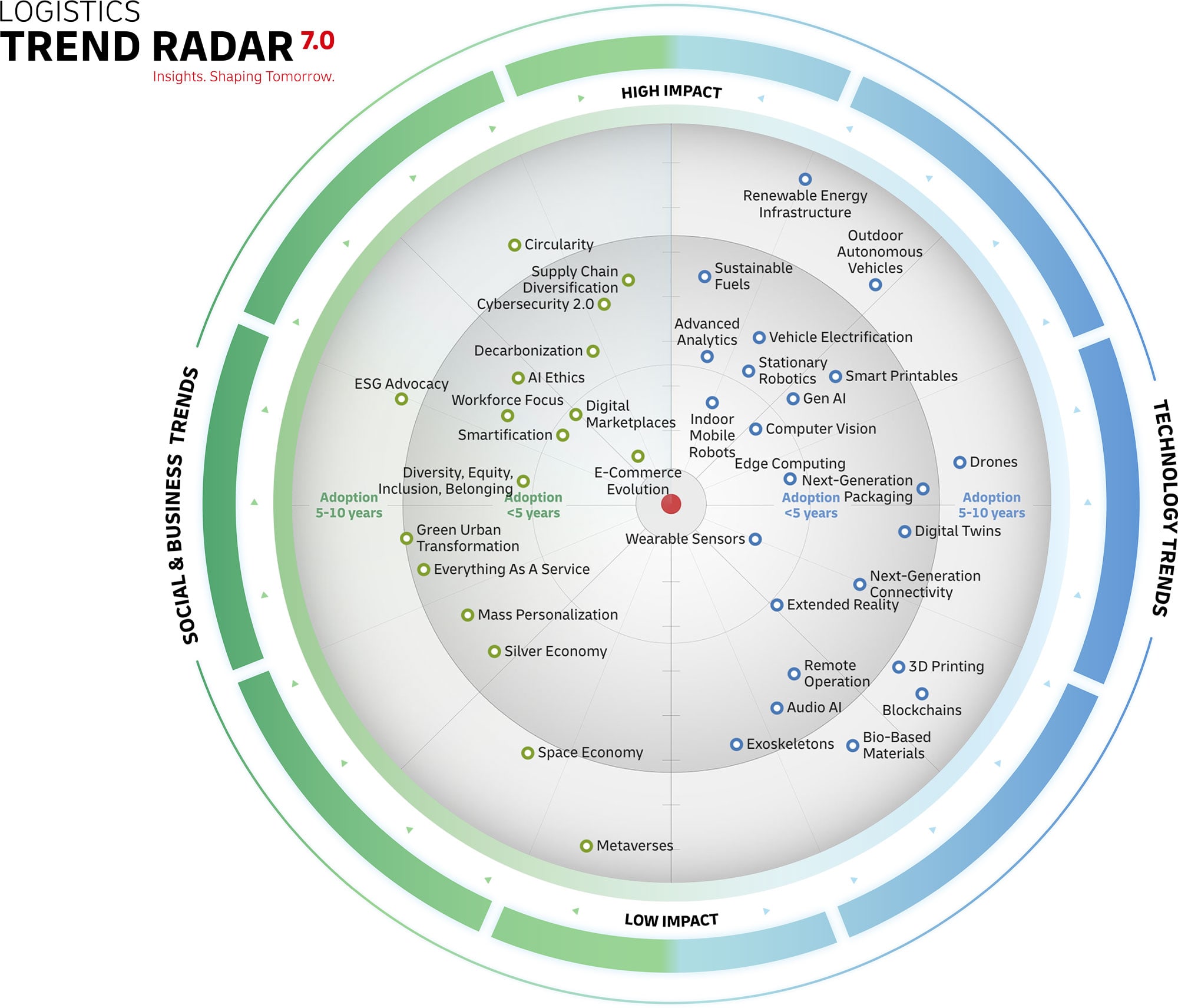The trend of Bio-Based Materials encompasses all materials produced exclusively from substances derived from traditional sustainable biomass, as well as modern bio-synthetic processes. This trend focuses on the beginning rather than the end of the product lifecycle and so it includes both biodegradable and non-biodegradable materials.
With consumers and corporations paying increased attention to sustainability in recent years, and as expectations rise and demands increase, logistics organizations are seeking to eliminate from daily operations materials seen as unsustainable and to reduce waste. Bio-based materials are identified as carbon- and waste-reducing resources that can be integrated into more sustainable solutions. A wide range of potential applications for bio-based materials exists in various supply chain segments, from building construction to packaging.
A survey conducted by McKinsey highlights the importance of bio-based solutions in the packaging industry. It reveals compostable packaging and plant-based packaging receive the highest rankings among end consumers, with 69% and 68% respectively, showing a generally positive correlation between the use of bio-based materials and consumer satisfaction. These high levels of consumer demand could push the application of bio-based solutions further in future.
Some bio-based materials have been used in logistics for many years already, especially those derived from conventional biomass. The best example of such a valuable and long-standing bio-based solution is the wooden pallet. More recently, additional bio-based materials have been introduced and tested, including bamboo, rice husk, palm fiber, mushroom, and solutions made of algae.
While the development of bio-based materials with comparable properties to conventional industrialized solutions is progressing, the industry is yet to witness a transformative development. Therefore, it is anticipated that it will take a minimum of five to seven years before bio-based alternative solutions are widely adopted as standard practice. Despite some potential impact on the sustainability and circularity of a supply chain, bio-based materials are not anticipated to have a profound effect on day-to-day logistics operations.













